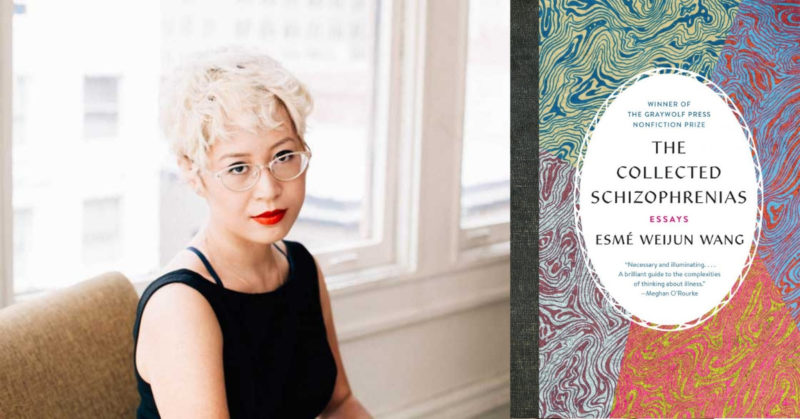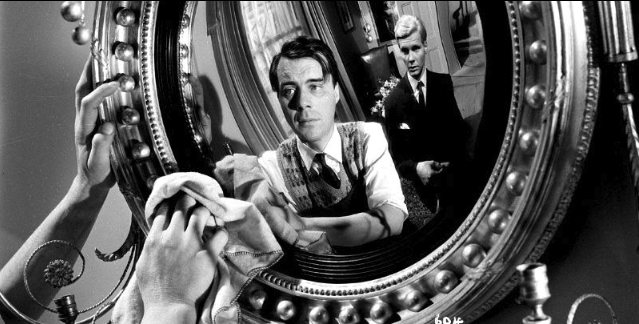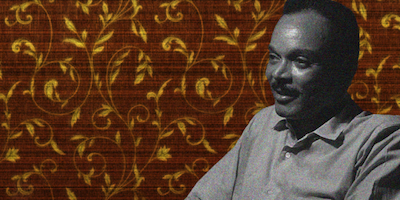
Lit Hub Staff Picks: Our Favorite Stories This Month
The Best Writing at the Site in February
From essays to interviews, excerpts and reading lists, we publish around 150 features a month. And though we’re proud of each week’s offerings, we do have our personal favorites. Below are some of our favorite pieces of writing from the month at Lit Hub.
![]()

A Dream Job Too Good To Be True, a Story Too Weird to Believe by Jessica Chiccehitto Hindman
Memoir is perhaps my least favorite genre. To quote Josh Groban on Crazy Ex-Girlfriend, “Life doesn’t make narrative sense.” Any time in recent history that I’ve read a memoir, I just find myself wishing it was fiction, so some of the narrative weirdness of real life could be smoothed over by the (to me) more interesting narrative weirdness of a novel. When I read this excerpt from Jessica Chiccehitto Hindman’s memoir about her time as a professional (mediocre) violinist whose imposter syndrome that turns out to be entirely accurate, though, I knew I had found the memoir for me at last. The piece is funny, bizarre, disconcerting, and an excellent read in this, the Eternal Summer of Scam.
–Jessie Gaynor, Lit Hub social media editor
 Esmé Weijun Wang on Karaoke, Work Ethic, and Returning to Fiction by R.O. Kwon
Esmé Weijun Wang on Karaoke, Work Ethic, and Returning to Fiction by R.O. Kwon
After reading (and loving) The Collected Schizophrenias, I was stoked to read R.O. Kwon’s interview with Esmé Weijun Wang. From defining yourself as an artist to the shape of healing to what’s next, this piece is both perceptive and damn delightful. Plus, the two writers have been friends for years, and the added intimacy really comes through and makes you feel privy to a sweet conversation between two very wise old friends.
–Katie Yee, Book Marks assistant editor
 Science: You’re Definitely Worrying About the Wrong Things by Lise A. Johnson and Eric Chudler
Science: You’re Definitely Worrying About the Wrong Things by Lise A. Johnson and Eric Chudler
As an extremely anxious person, I anxiously read this piece to discover what I was too anxious about, and what, if anything, I wasn’t anxious enough about. As a result, I have now been freed from my chronic compulsion to try natural deodorants, which Do Not Work. I have also given up sugar (again). And as it turns out, you only officially have to worry about things that are a. Likely and b. Preventable, which seems counterintuitive but is actually really freeing. You too can experience the life-changing magic of reading this excerpt by clicking on the link above.
–Emily Temple, Lit Hub senior editor
 On the Iconic First Line of One Hundred Years of Solitude by Claire Adam
On the Iconic First Line of One Hundred Years of Solitude by Claire Adam
This piece is a close-reading of that—yes, iconic—opening line to Gabriel Garcia Marquez’s classic novel. I love reading about how time is fake and/or cyclical, and this is one of the greatest lines about time being fake and/or cyclical ever. Claire Adam masterfully breaks the sentence down in English and Spanish and contextualizes it, and uses it to ask questions no one could possibly hope to answer about history, about writing, about experiencing life, knowledge, and the weather.
–Kevin Chau, Lit Hub editorial fellow
 Ten Thoughts on Having Your Novel Translated into Your Native Tongue by Johannes Lichtman
Ten Thoughts on Having Your Novel Translated into Your Native Tongue by Johannes Lichtman
It’s one thing for your novel to be published, yet another for it to be translated, but to have it translated into the language from your mother-tounge––a language you no longer quite speak––is something entirely else. Lichtman writes, “Swedish was technically my first language, but English is the language in which I grew up, the language in which I became myself, and the language in which I feel at home… I lack the vocabulary and cultural fluency to write a novel in Swedish.” This is a fascinating essay on the politics of translation, the anxiety of a debut novelist, and the way in which our own language often fails us.
–Emily Firetog, Lit Hub deputy editor
 How to Free Yourself From the ‘Walking Essay’ by Lucy Schiller
How to Free Yourself From the ‘Walking Essay’ by Lucy Schiller
Lucy Schiller’s account of isolation during the polar vortex—brought on by frigid temperatures, school closures, and temporarily restricted mobility caused by Raynaud’s syndrome—makes some unexpected turns as she considers the relationship between writing and movement as it takes form in the “walking essay,” a sometimes-too-convenient narrative structure. Instead of the “walking essay,” Schiller models a way of writing that draws on stillness and contemplation. “There are ways of sitting static, of finding meaning and even a sense of possibility without going on a walk and searching for a pear tree, an argument, a plot,” she writes. Reading this piece feels like a rare moment of rest.
–Corinne Segal, Lit Hub senior editor
 Tigers Don’t Eat Humans, So Why Did This One Kill Over 400 People? by Dane Huckelbridge
Tigers Don’t Eat Humans, So Why Did This One Kill Over 400 People? by Dane Huckelbridge
This essay—which tells of a near-mythic Royal Bengal tiger who developed an insatiable hunger for human flesh, stalking and devouring at least 426 people “with shocking impunity and an almost supernatural efficacy” in the Himalayan foothills during the early years of the 20th century—is more than just a delightfully macabre account of man versus beast (or, to be more specific, conservationist super hunter versus ferocious ubertiger). It’s also a trenchant examination of the role rapacious colonialism and wanton environmental destruction played in the creation of a monster.
–Dan Sheehan, Book Marks senior editor
 The Dubiously Devoted Employer and the Less-Than-Loyal Servant by Renee Knight
The Dubiously Devoted Employer and the Less-Than-Loyal Servant by Renee Knight
“The trusted and faithful one, so quiet and humble, chosen for their dedication, turns out to be the most dangerous person in the room.” From Iago to Mrs. Danvers, Eve Harrington to Louise from The Perfect Nanny, Renee Knight explores the fertile relationship between servant and employer, and its enduring potential for co-dependency, manipulation, and subversion. In her new thriller, The Secretary, a devoted personal assistant—and the silent witness to over twenty years of secrets—is forced to account for her employer’s newfound misconduct. It’s really a wonder we trust anyone at all.
–Camille LeBlanc, CrimeReads editorial fellow
 The Astronomical Cost of Clean Air in Bangkok by Pitchaya Sudbanthad
The Astronomical Cost of Clean Air in Bangkok by Pitchaya Sudbanthad
The future of climate change is now the present, as William T Vollmann and many others have pointed out. You can’t just speak exclusively in tones of warning now. It’s time to think of mourning; of severe adjustments. And also a disgusted sense of wonder. Of ownership. We built this purgatorio after-all. Pitchaya Sudbanthad uses all these registers and more in this little miracle of an essay about how in Bangkok today, you have to go up and up and up to get clean air. This in a city which will be one of the first to be submerged by water.
–John Freeman, executive editor
 Marriage Isn’t the Only Plot for Love by Kristen Martin
Marriage Isn’t the Only Plot for Love by Kristen Martin
I read Kristen Martin’s essay on her own American marriage just as I was preparing to move with my partner into our first apartment together, in Brooklyn. Martin cites some of the reasons why young people like me are choosing to marry later in life, economic anxiety and professional ambition among them. As Martin considers “the breadth of the wedding industrial complex that our capitalist culture has built,” she turns to the essays of Briallen Hopper, who articulates visions of extramarital love (for friends, siblings, etc.) that gently remind us of life’s richness and complexity beyond romantic partners. It’s a simple, important reminder, written about here with insight and great tenderness.
–Aaron Robertson, Lit Hub assistant editor
 Violence and Madness in a Lost Chester Himes Noir by Michael Gonzales
Violence and Madness in a Lost Chester Himes Noir by Michael Gonzales
Michael Gonzales guides us through the life and times of iconic mid-century crime writer Chester Himes, and looks at a lost Himes classic, Run Man Run. Gonzales also perfectly captures the subtle evolution in Himes’s work, from a surrealist portrait of crime and violence in midcentury New York to something darker and more sinister, a social realism that laid bare the evils of racism in northern cities and still resonates powerfully today. Himes is a particular favorite amongst today’s crime writers, but his legacy, like his work, is complex and multi-layered. It takes a skilled guide like Gonzales to put the man and the literature into context.
–Dwyer Murphy, CrimeReads managing editor
 How Five Favorite Childhood Mysteries Stack Up Today by Hester Young
How Five Favorite Childhood Mysteries Stack Up Today by Hester Young
“If you’re a longtime fan of crime novels, you’ve probably already experienced the cringing feeling of a bad re-read”: So true, Hester, so true. Take a trip back to your childhood favorites with Hester Young in this compelling article about the vastly different experiences of reading as a child, versus reading as an adult. Some childhood mystery classics hold up surprisingly well, while others might be best left to the academics, rather than the children.
–Molly Odintz, CrimeReads associate editor



















